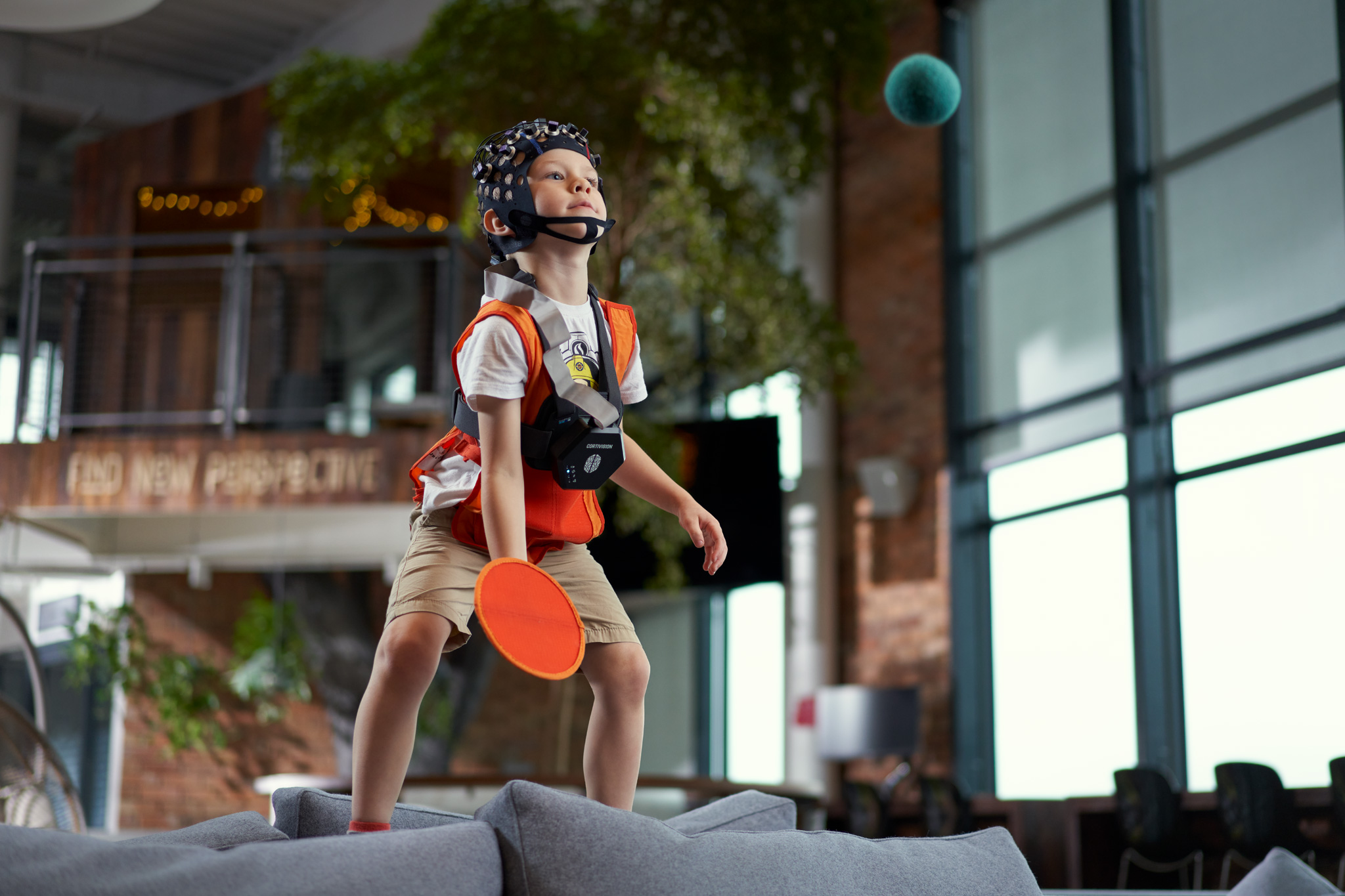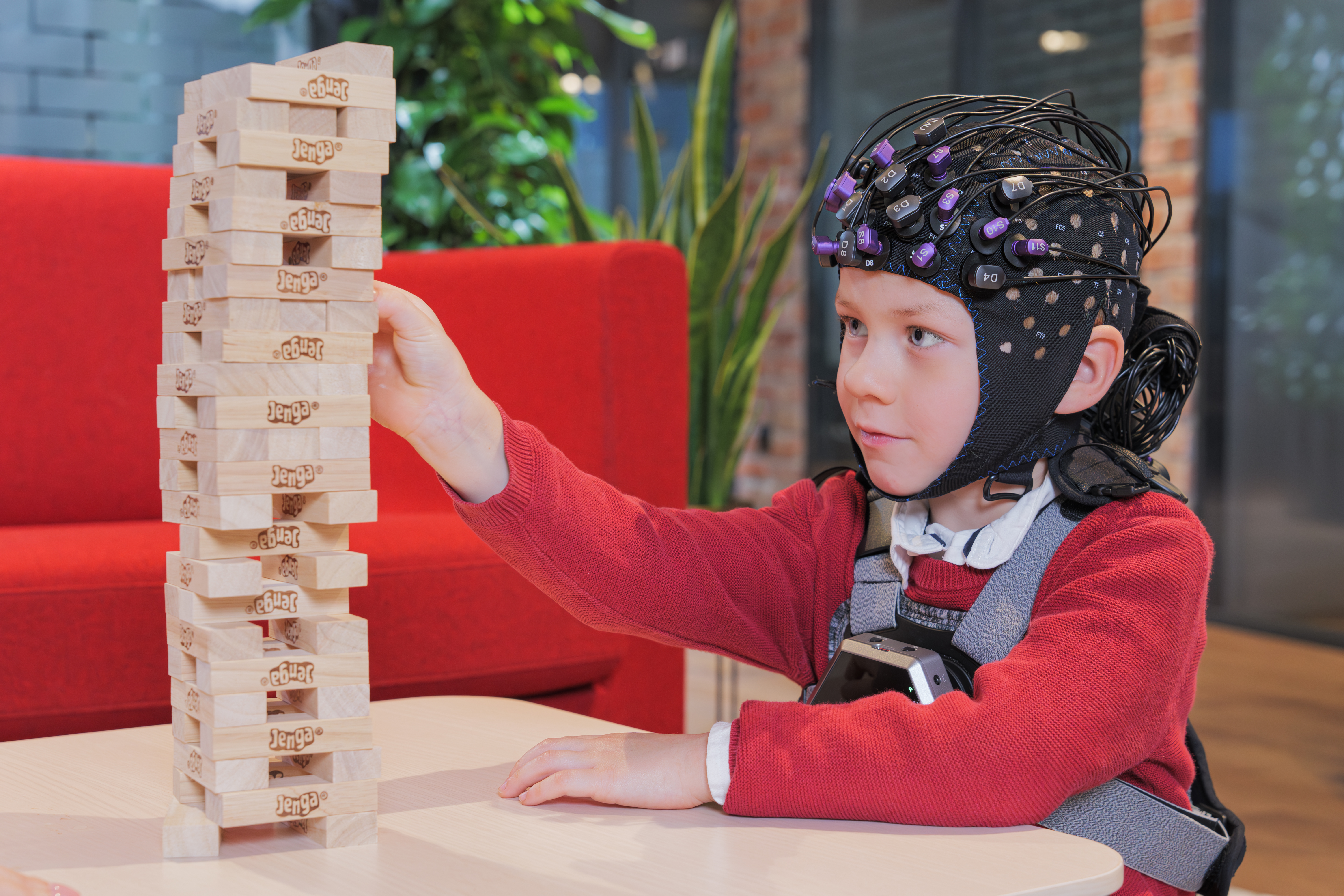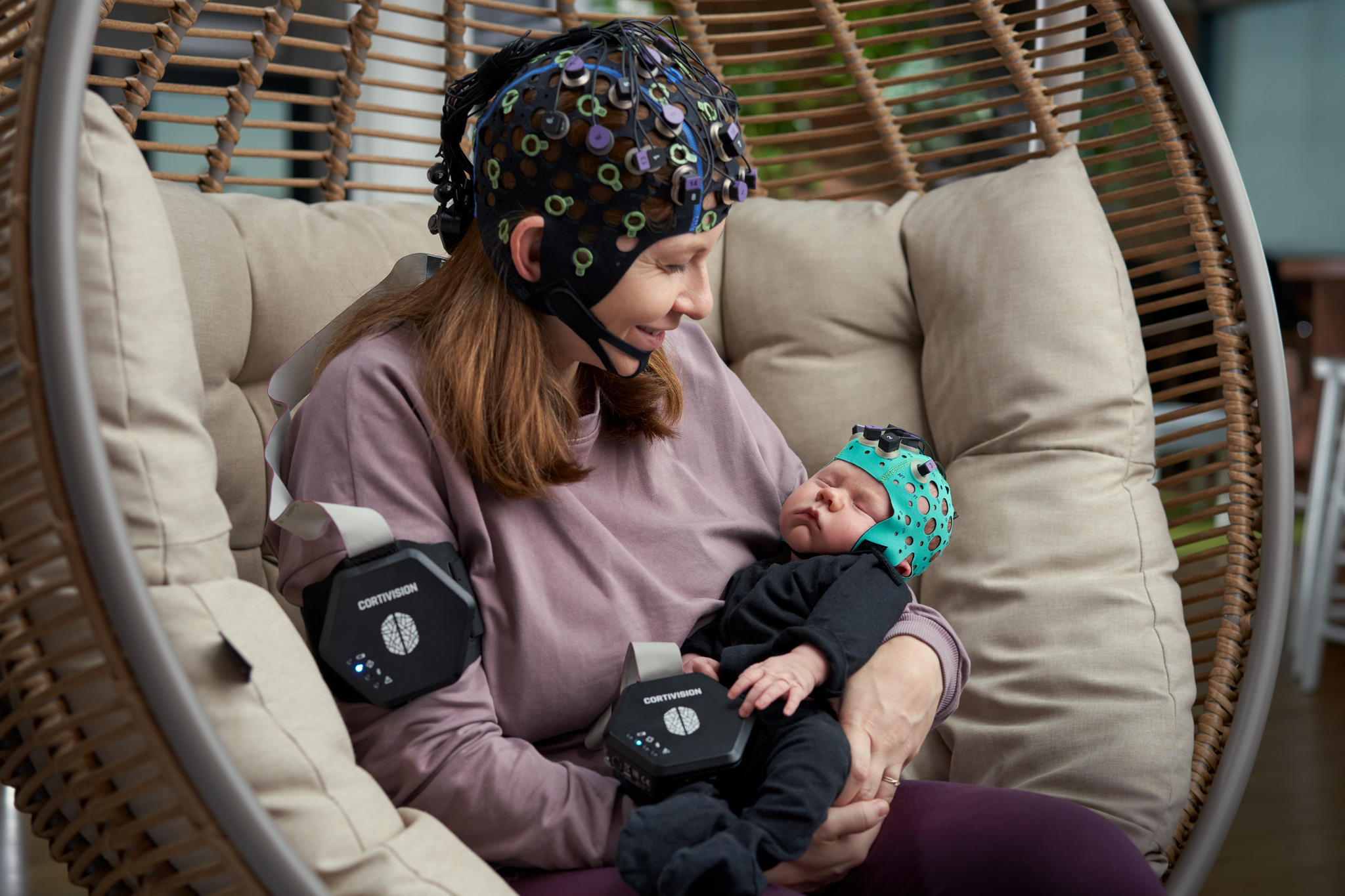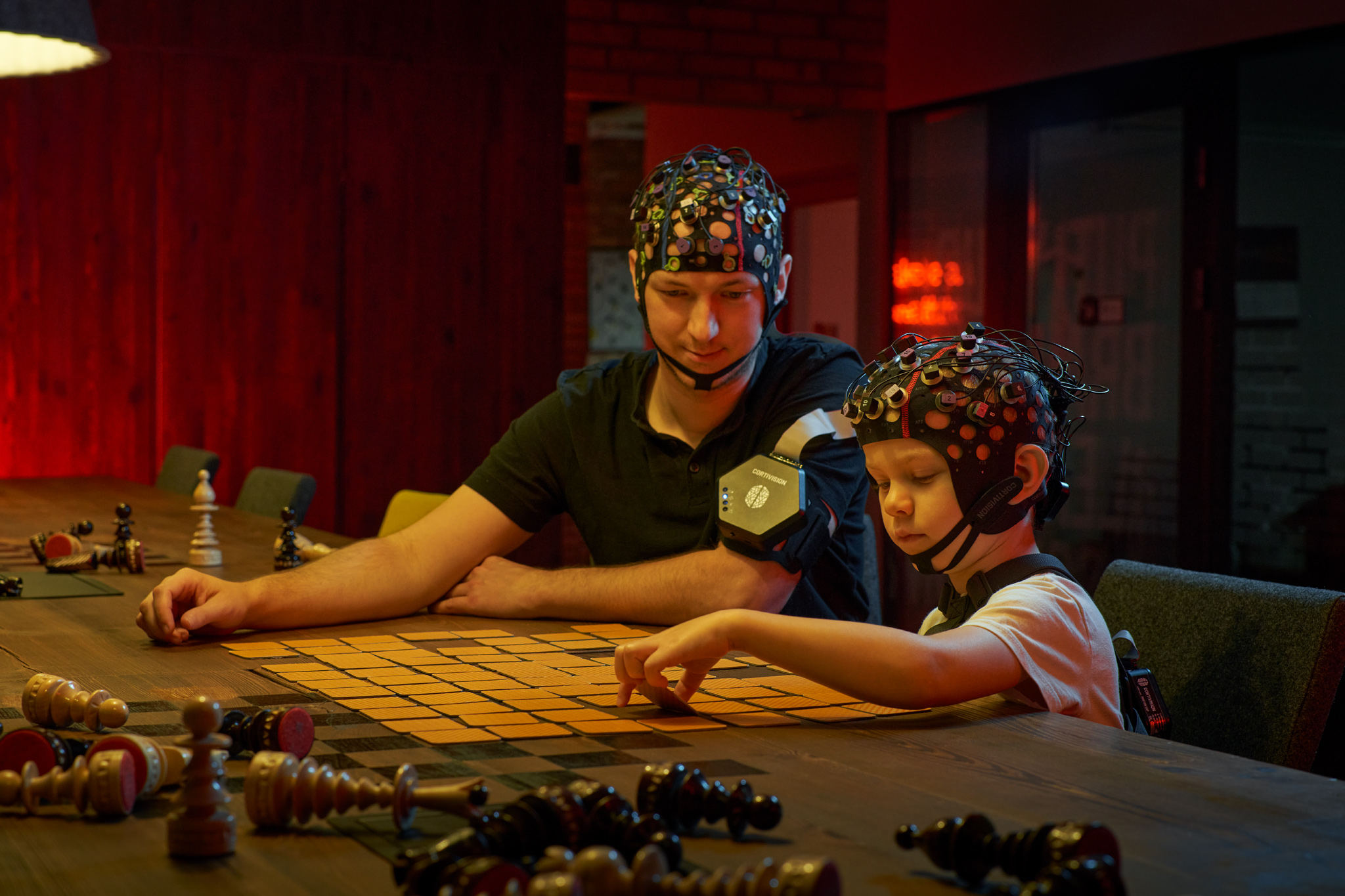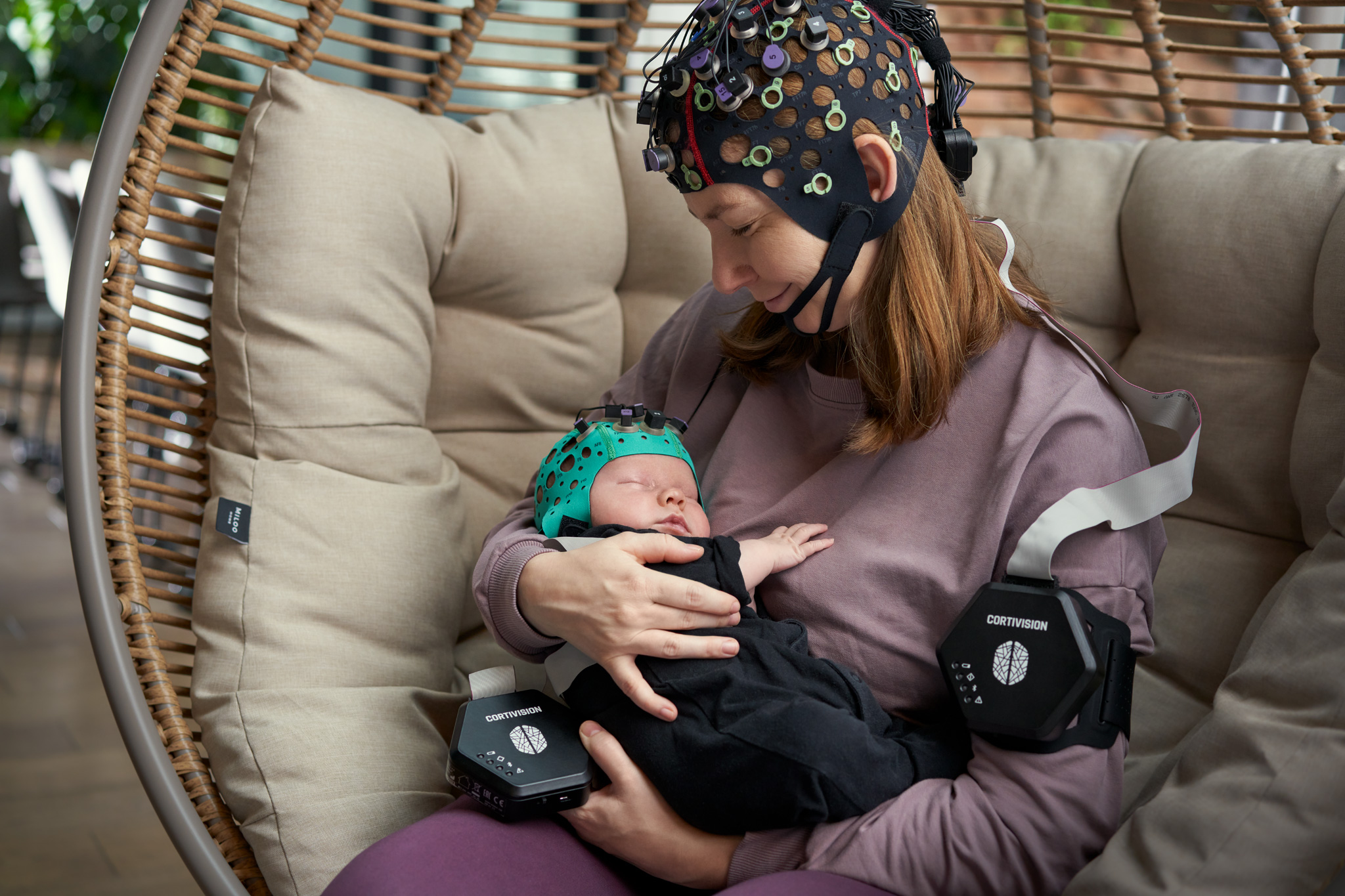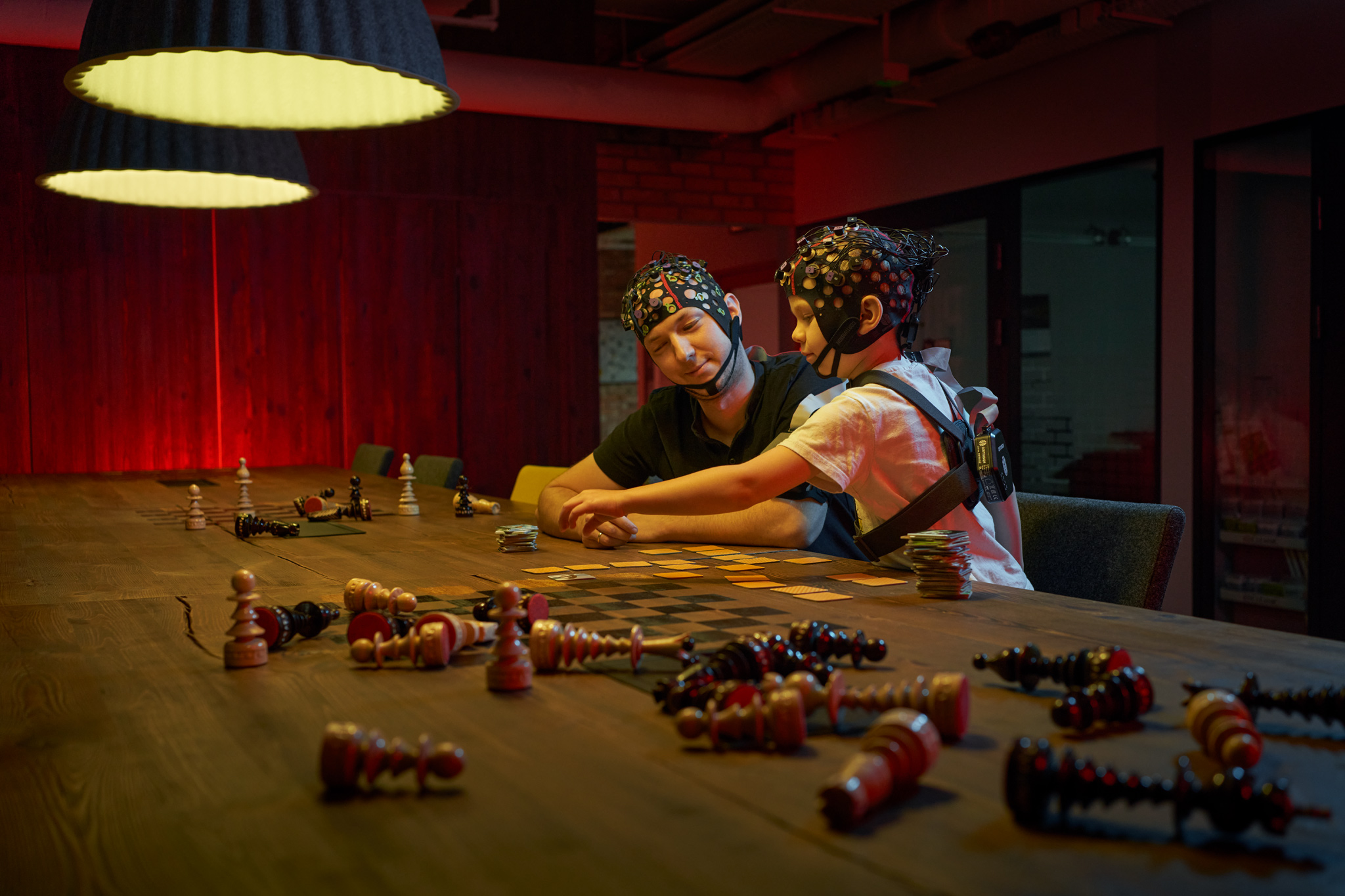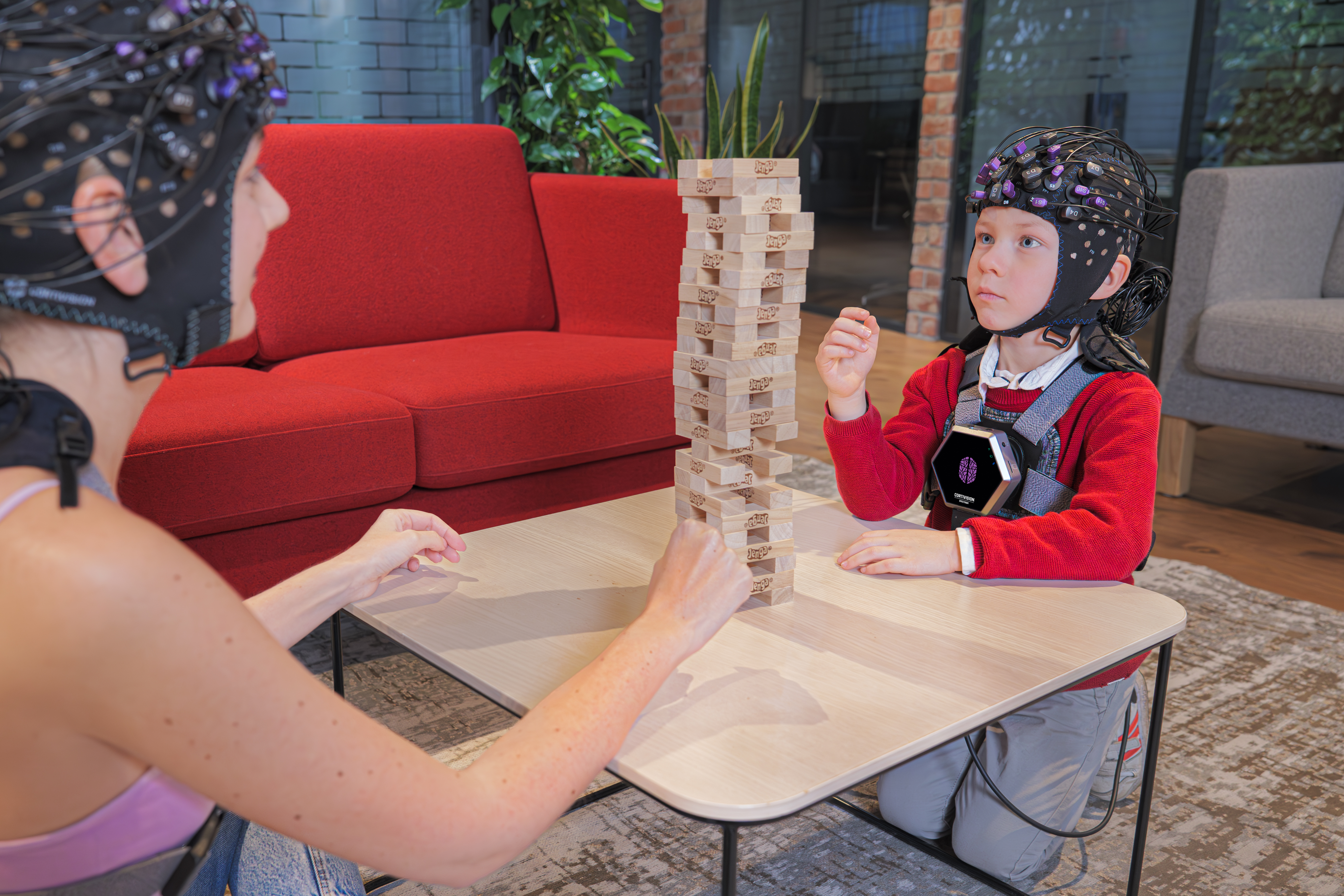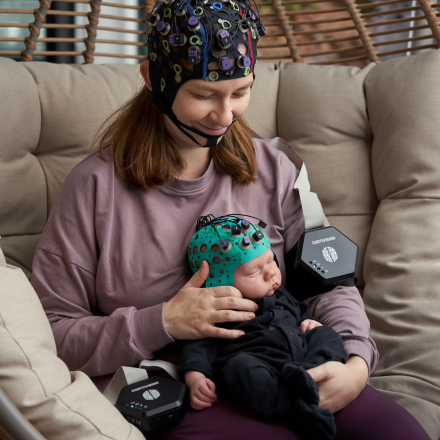
Cortivision fNIRS for Neurodevelopmental and Child Studies
Cortivision’s fNIRS products are designed to meet the unique needs of child-focused research, from infancy through early childhood. The physiological and behavioral differences between adults and children mean that child studies require more adaptable, comfortable equipment that is safe for delicate skin and allows for natural movement. Cortivision’s systems address these needs with innovative designs that prioritize comfort, portability, and precision, making them ideal for neurodevelopmental research and studies of brain oxygenation changes.
Neurodevelopmental studies benefit greatly from fNIRS technology due to its non-invasive nature and ability to monitor brain function changes in real time. Cortivision’s systems are designed to be child-friendly and can capture essential data on i.e. cognitive development, social processing or language acquisition across different developmental stages. The Photon Cap includes a specially designed baby optode configuration that fits comfortably on smaller heads, accommodating infants and toddlers without causing discomfort. The Spectrum, with its universal cap design, is adjustable for use with older children, providing versatility for multi-age studies within a single system.
The Photon Cap’s baby optode design ensures a gentle fit tailored specifically for very young participants. Its soft, lightweight structure is optimized for comfort, even during extended sessions, which is crucial for neurodevelopmental studies involving babies and toddlers who are more sensitive to external stimuli. The Spectrum C23, on the other hand, features a universal design that adapts to both children and adults, making it an excellent choice for longitudinal studies that require monitoring participants across different age groups. This flexibility enables researchers to seamlessly track cognitive and emotional development over time, using the same system as children grow.
Both Spectrum and Photon Cap are highly adaptable for real-world environments and laboratory settings alike. With their portable designs, these systems enable children to move naturally, supporting studies that capture brain oxygenation dynamics in realistic, engaging situations. Spectrum’s integrated motion artifact control provides reliable data even when children are playing, exploring, or interacting with others, minimizing interruptions from movement-related artifacts.
Furthermore, Cortivision’s software ecosystem, CortiView and CortiPrism, empowers researchers to design, monitor, and analyze fNIRS data tailored to the specific needs of child studies. CortiView offers customizable montages and real-time data monitoring, allowing researchers to adjust setups as needed for each age group or experiment type. CortiPrism provides advanced analytical tools, such as GLM analysis and detailed visualization, making it easier to extract meaningful insights from developmental data.
Cortivision’s dedication to creating comfortable, accurate, and flexible fNIRS systems has made Spectrum C23 and Photon Cap ideal solutions for neurodevelopmental research. Whether in the lab or in real-world settings, our systems support researchers in capturing reliable data while ensuring young participants remain comfortable and at ease throughout the study.
See references:
- Llamas-Ramos, R., Sánchez-González, J. L., Alvarado-Omenat, J. J., Rodríguez-Pérez, V., & Llamas-Ramos, I. (2024). Brain electrical activity and oxygenation by Reflex Locomotion Therapy and massage in preterm and term infants. A protocol study. NeuroImage. https://doi.org/10.1016/j.neuroimage.2024.120765
- Jongenelen, I., Pinto, T. M., Costa, R., Pasion, R., Morais, A., Henriques, S., & Lamela, D. (2023). The influence of maternal reflective functioning and parenting behavior on infant development in the context of perinatal intimate partner violence: a study protocol. BMC psychology, 11(1), 166.
- Perpetuini, D., Russo, E. F., Cardone, D., Palmieri, R., Filippini, C., Tritto, M., … & Filoni, S. (2022). Identification of functional cortical plasticity in children with cerebral palsy associated to robotic-assisted gait training: An fNIRS study. Journal of Clinical Medicine, 11(22), 6790.
